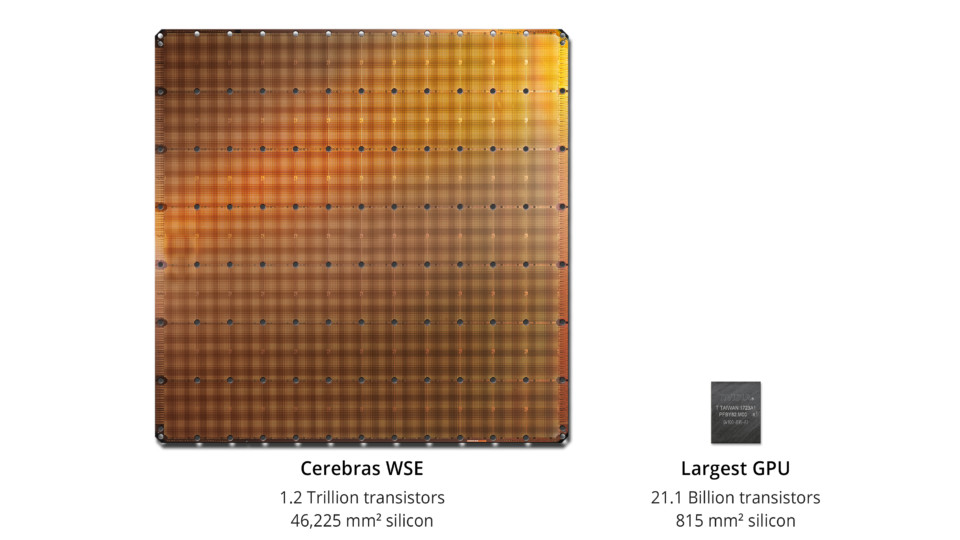World's biggest computing chip is '10,000 times faster' than a GPU, maker claims
Cerebras WSE processor is delivering incredible speeds

Sign up for breaking news, reviews, opinion, top tech deals, and more.
You are now subscribed
Your newsletter sign-up was successful
Cerebras Systems has today confirmed that its CS-1 computing system has achieved a new performance milestone, delivering speeds far beyond what existing CPUs and GPUs are able to achieve.
The CS-1, which is based on Cerebras’ WSE processor – the world’s largest computer chip, can now claim to be the “fastest AI computer in existence.”
According to Cerebras and the Department of Energy’s National Energy Technology Laboratory (NETL), the CS-1 is more than 10,000 times faster than leading GPU competitors and 200 times faster than the Joule Supercomputer – currently ranked 82nd on the list of the top 500 supercomputers in the world.
- Here’s our list of the best cloud computing services
- Check out our roundup of the best cloud storage solutions
- Also, see our list of the best business PCs
“Cerebras is proud to extend its work with NETL and produce extraordinary results on one of the foundational workloads in scientific compute,” Andrew Feldman, co-founder and CEO at Cerebras Systems, explained.
“This work opens the door to major breakthroughs in scientific computing performance, as the CS-1, with its wafer-scale engine, overcomes traditional barriers to high achieved performance, enabling real-time and other use cases precluded by the failure of strong scaling. Because of the radical memory and communication acceleration that wafer scale integration creates, we have been able to go far beyond what is possible in a discrete, single chip processor, be it a CPU or a GPU.”
The need for speed
The workload carried out to deliver the new CS-1 benchmarks involved a large, sparse, structured system of linear equations, the kind used to model a number of real-world scenarios, including fluid dynamics and energy efficiency.
Despite its impressive statistics, however, there remain question marks over what sort of applications it will be possible to run using the wafer-scale technology that underpins the CS-1. Computer modelling at rapid speed certainly seems to be possible and there is much excitement about the potential future intersection of supercomputing and artificial intelligence.
Sign up to the TechRadar Pro newsletter to get all the top news, opinion, features and guidance your business needs to succeed!
- Take a look at our list of the best workstations
Barclay has been writing about technology for a decade, starting out as a freelancer with ITProPortal covering everything from London’s start-up scene to comparisons of the best cloud storage services. After that, he spent some time as the managing editor of an online outlet focusing on cloud computing, furthering his interest in virtualization, Big Data, and the Internet of Things.
